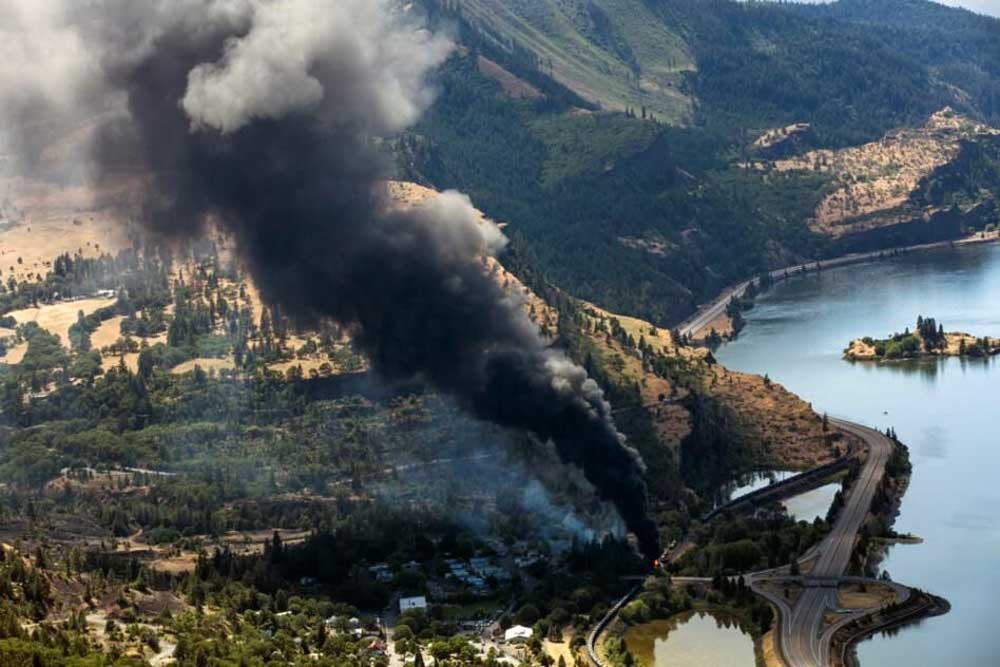Environmental agency lacks resources to face enormity of climate change
Published 10:16 pm Thursday, April 18, 2024

- In 2016, a Union Pacific train carrying crude oil derailed in Mosier along the Columbia River Gorge.
Oregon’s environmental regulatory agency needs more staff and funding to keep up with growing demand for its services as climate change escalates, according to a new state analysis.
Trending
Auditors from the Oregon Secretary of State’s Office, who published their findings Wednesday, said the state Department of Environmental Quality is understaffed and lacks resources to take on what is becoming an already large workload as drought, wildfire, flood and air pollution risks increase.
“The escalating effects of climate change and related impacts to environmental quality may outpace DEQ’s ability to provide a high level of service, especially to some of Oregon’s more vulnerable communities,” the auditors wrote. “Related challenges include the agency’s broad scope of work and a growing public demand for services paired with persistent funding limitations.”
They recommended the agency, which is in the process of creating a strategic plan to send to Gov. Tina Kotek in June, address these issues in its plan. The purpose of the audit is to provide feedback and recommendations throughout the planning process, auditors wrote.
Trending
Lauren Wirtis, a spokesperson for the agency, said in an email that staff agree with the findings.
“DEQ has a broad scope of authority to protect Oregon’s air, land and water. Each of these issues is getting increasingly complicated as we consider the impacts of climate change and new issues emerge,” Wirtis said.
Staffing levels at the environmental agency pale in comparison to other state agencies with similarly broad scopes and demands, the auditors found. The department has funding for about 850 full-time staff. The Oregon Department of Human Services, which handles many crucial social service programs, has a budget for 12 times as many staff, auditors noted. Both the Oregon Department of Fish and Wildlife and the Oregon Department of Forestry also have budgets for significantly more staff than the environmental quality department.
Staffing levels today at DEQ are the same as they were in 2000.
“Some programs have struggled with perennial understaffing that risks severely curtailing their functionality,” the auditors wrote.
As an example, in 2016 when a Union Pacific train carrying crude oil derailed in Mosier along the Columbia River Gorge, just six emergency responders from the Department of Environmental Quality were immediately deployed to aid in the cleanup. The Washington State Department of Ecology was able to send 70 trained first responders to aid in the cleanup. As of spring 2023, Oregon’s environmental department had 11 full-time staff dedicated to emergency response statewide.
In interviews with staff, auditors found there were issues of high turnover, difficulty recruiting and retaining experienced staff and frustration with low pay. Additionally, managers said that the expectations placed on staff have become increasingly complex and burdensome as many federal and state standards and rules change, forcing the agency to respond.









